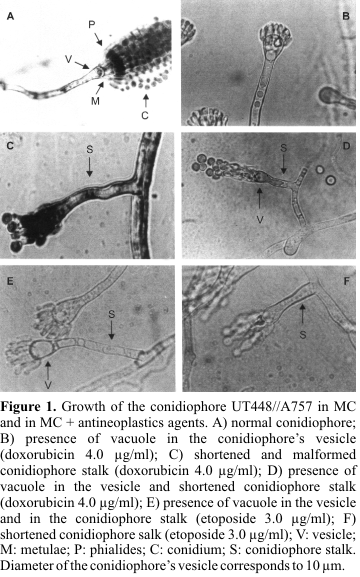Doxorubicin and etoposide are intercalating agents that inhibit the action of the enzyme topoisomerase II. Both drugs present therapeutic activity in numerous human neoplasms In the present work the recombinagenic potential of these drugs was evaluated by ascomycete Aspergillus nidulans. Their effects on the asexual cycle of A. nidulans was also appraised. Two heterozygous diploid strains of A. nidulans, a wild (uvsH+//uvsH+) and a defective to the DNA repair (uvsH//uvsH) were used. The drugs' recombinagenic potential was evaluated by their capacity to induce homozygosis of recessive genes from heterozygous cells. Both drugs have a recombinagenic effect on diploid cells of A. nidulans. Doxorubicin and etoposide are potentially capable to induce secondary malignancies, mediated by the mitotic crossing-over in eukaryotic cells.
antineoplastic agents; mitotic crossing-over; secondary malignances





